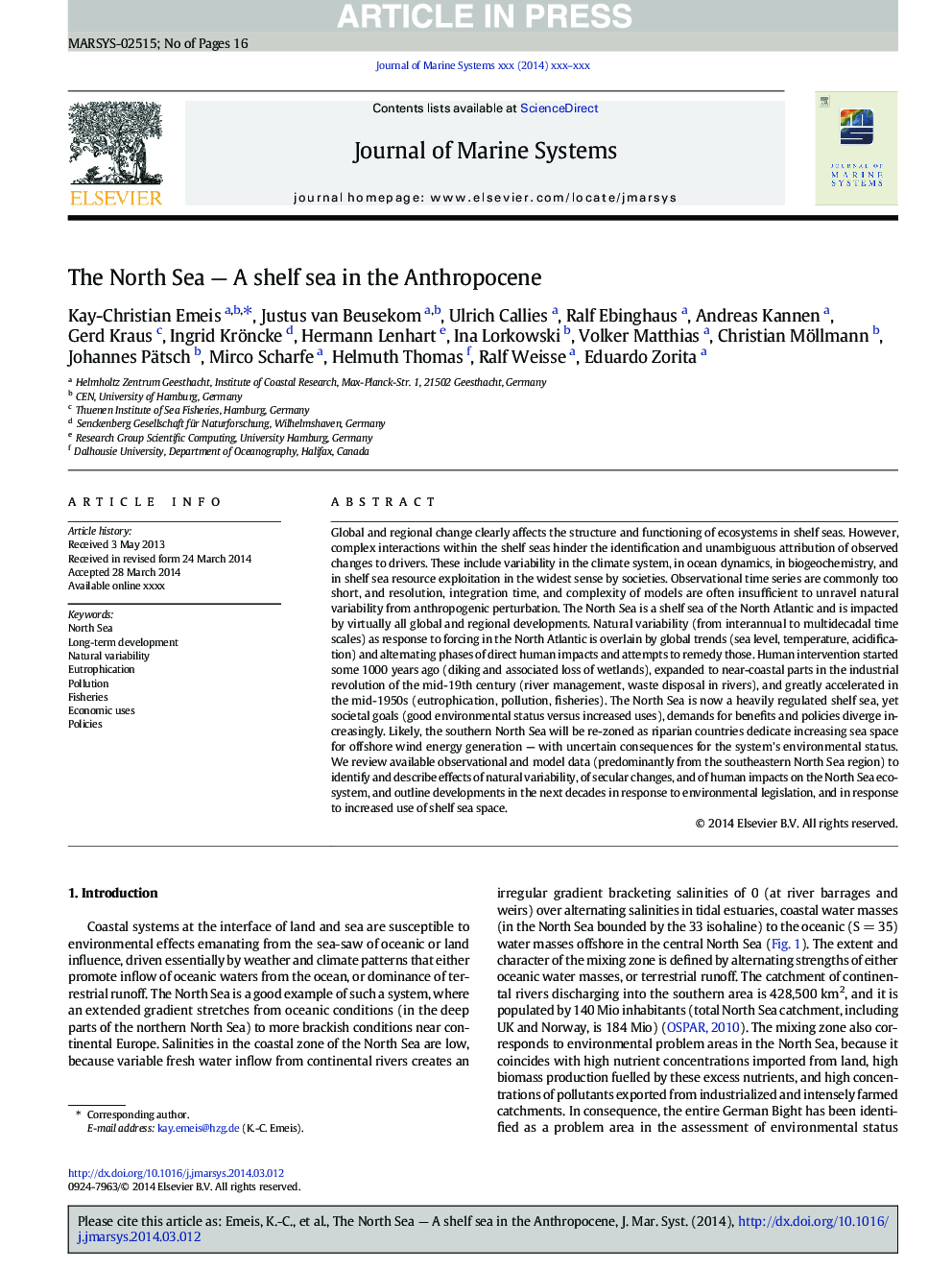| کد مقاله | کد نشریه | سال انتشار | مقاله انگلیسی | نسخه تمام متن |
|---|---|---|---|---|
| 6386829 | 1627288 | 2015 | 16 صفحه PDF | دانلود رایگان |
عنوان انگلیسی مقاله ISI
The North Sea - A shelf sea in the Anthropocene
دانلود مقاله + سفارش ترجمه
دانلود مقاله ISI انگلیسی
رایگان برای ایرانیان
کلمات کلیدی
موضوعات مرتبط
مهندسی و علوم پایه
علوم زمین و سیارات
اقیانوس شناسی
پیش نمایش صفحه اول مقاله

چکیده انگلیسی
Global and regional change clearly affects the structure and functioning of ecosystems in shelf seas. However, complex interactions within the shelf seas hinder the identification and unambiguous attribution of observed changes to drivers. These include variability in the climate system, in ocean dynamics, in biogeochemistry, and in shelf sea resource exploitation in the widest sense by societies. Observational time series are commonly too short, and resolution, integration time, and complexity of models are often insufficient to unravel natural variability from anthropogenic perturbation. The North Sea is a shelf sea of the North Atlantic and is impacted by virtually all global and regional developments. Natural variability (from interannual to multidecadal time scales) as response to forcing in the North Atlantic is overlain by global trends (sea level, temperature, acidification) and alternating phases of direct human impacts and attempts to remedy those. Human intervention started some 1000Â years ago (diking and associated loss of wetlands), expanded to near-coastal parts in the industrial revolution of the mid-19th century (river management, waste disposal in rivers), and greatly accelerated in the mid-1950s (eutrophication, pollution, fisheries). The North Sea is now a heavily regulated shelf sea, yet societal goals (good environmental status versus increased uses), demands for benefits and policies diverge increasingly. Likely, the southern North Sea will be re-zoned as riparian countries dedicate increasing sea space for offshore wind energy generation - with uncertain consequences for the system's environmental status. We review available observational and model data (predominantly from the southeastern North Sea region) to identify and describe effects of natural variability, of secular changes, and of human impacts on the North Sea ecosystem, and outline developments in the next decades in response to environmental legislation, and in response to increased use of shelf sea space.
ناشر
Database: Elsevier - ScienceDirect (ساینس دایرکت)
Journal: Journal of Marine Systems - Volume 141, January 2015, Pages 18-33
Journal: Journal of Marine Systems - Volume 141, January 2015, Pages 18-33
نویسندگان
Kay-Christian Emeis, Justus van Beusekom, Ulrich Callies, Ralf Ebinghaus, Andreas Kannen, Gerd Kraus, Ingrid Kröncke, Hermann Lenhart, Ina Lorkowski, Volker Matthias, Christian Möllmann, Johannes Pätsch, Mirco Scharfe, Helmuth Thomas, Ralf Weisse,